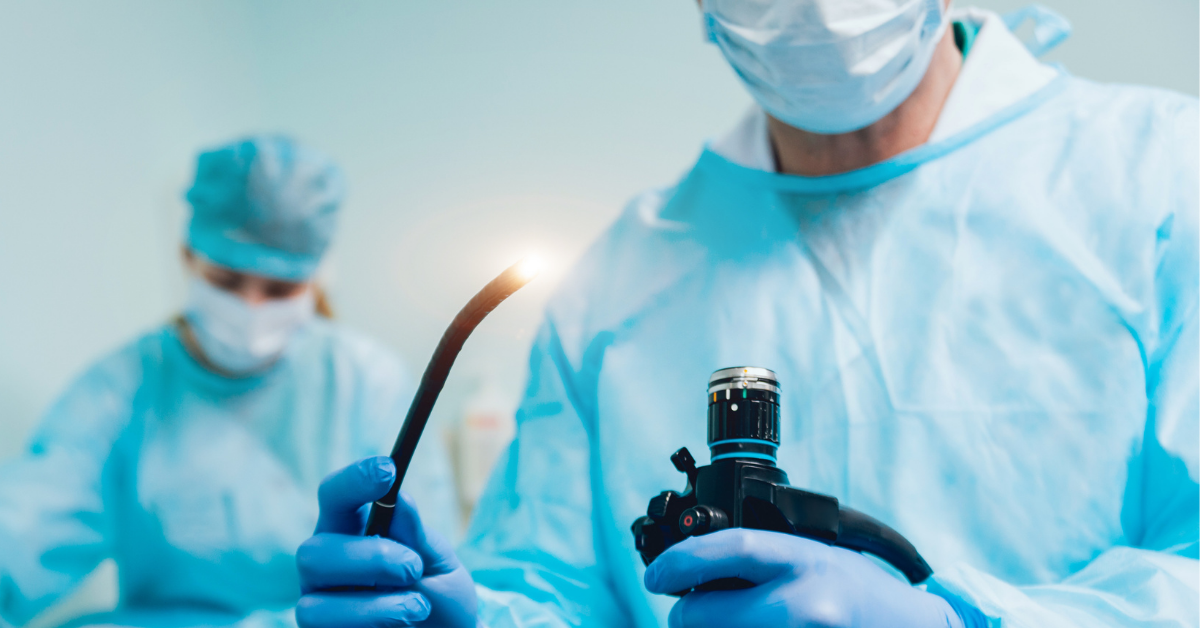
As we age, colonoscopies are a right of passage. The procedure screens for colorectal cancer and the polyps that can become cancerous over time. And they’re common.
Colorectal cancer is the third most frequently diagnosed cancer in the U.S. (aside from skin cancers) and the third leading cause of cancer-related deaths. Yet many Americans are not up-to-date on their screenings.
“We still have more than 50,000 people a year dying from colon cancer in the United States,” says Dr. Amit Aravapalli, a gastroenterologist at Tryon Medical Partners. “The biggest factor contributing to this number is that up to 40 percent of Americans don’t get screened at all.”
As unappealing as they may sound, providers like Tryon work to make colonoscopies as convenient as possible. And with the recent changes in age recommendations for colonoscopies, you may be closer to the screening age than you think.
1. 45 is the new 50 for colonoscopies
Colorectal cancer diagnosis rates are on the rise in younger Americans. While incidence rates of colon cancer are dropping in older adults due to successful screening practices, they are increasing at a rate of two percent per year for those younger than 50. That’s why the recommended screening age has dropped from age 50 to 45.
“If we can speed up screenings, we might be able to catch cases earlier and decrease the number of deaths due to colon cancer,” says Tryon gastroenterologist Dr. Eric Hilgenfeldt.
It’s important to note that the age 45 recommendation is for those at average risk of colorectal cancer. For individuals at a higher risk due to family history, that age could be even a decade earlier. Knowing your family history of colorectal cancer and polyps is key and something that should be discussed with your primary care provider, who can use the information to create a screening plan based on your needs.
2. Cologuard® and other at-home tests simply aren’t as accurate
It may be tempting to go the route of the at-home screening tests you’ve heard advertised on television, but not so fast. Cologuard is designed to detect cancer, not prevent it. It finds only 42 percent of high-risk large polyps and misses one in 13 cancers. In contrast, a colonoscopy finds more than 95 percent of high-risk polyps and colon cancers.
There are also incidences of false negatives and false positives with Cologuard, which require a follow-up colonoscopy. Of the one in six Cologuard tests that show a positive result suggesting the presence of colorectal cancer, 45% will show they were false positives during follow-up.
3. There are ways to prep for the prep
Those who have previously had colonoscopies often bemoan the preparation or “prep,” which involves drinking a bowel cleansing agent that allows doctors an unobstructed view of the inside of your colon.
Dr. Aravapalli has several hacks that make the liquid more palatable. After chilling, use a straw to drink it further back on your tongue. He also recommends using candy to improve the taste, like sucking on a menthol lozenge or taking it with gummy bears (just avoid the red ones).
Five to seven days prior to colonoscopy, you should minimize or eliminate nuts, seeds, whole kernel corn and popcorn and large amounts of salad or raw vegetables. During the 24 hours prior to your colonoscopy, you are asked to maintain a clear liquid diet, which does include things like black coffee, broth, seltzer water and sodas.
4. Work with your primary care provider for a referral
Either your primary care provider or gastroenterologist will give you a referral for your colonoscopy after discussing family history to assess your best plan for screenings.
There are advantages to being referred to Tryon’s own Endoscopy Center. This state-of-the-art facility was designed with patients in mind, including easy, convenient parking. No medical plazas, gated lots, parking tickets or validations needed. And, more importantly, Tryon’s expert physicians spend more time on your procedure. We get it – a colonoscopy might not seem like a procedure you want to take longer. But, while you’re asleep, Tryon doctors take the time they need to be thorough rather than rushing through. That’s the independent practice difference.
As an ambulatory surgery center (ASC), the Tryon Endoscopy Center does not require hospital admission. That means a less stressful environment for patients and less expensive (meaning no facility fees), which makes a big difference for patients paying out of pocket. There is also no required office visit beforehand, unless patients prefer one. That makes it easier to schedule and check off your list, plus less time spent at the doctor’s office.
Developing your screening plan all starts with a discussion. Share your family history with your primary care provider and know that those at average risk will now need to begin screenings at age 45. Together, we can reduce the risk of colorectal cancer.
